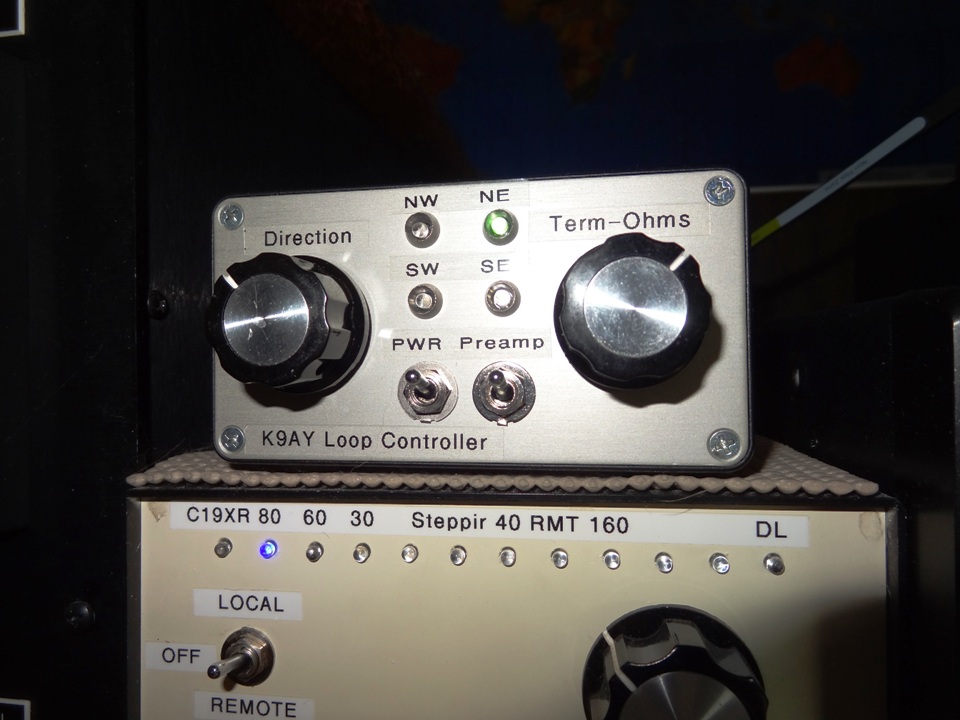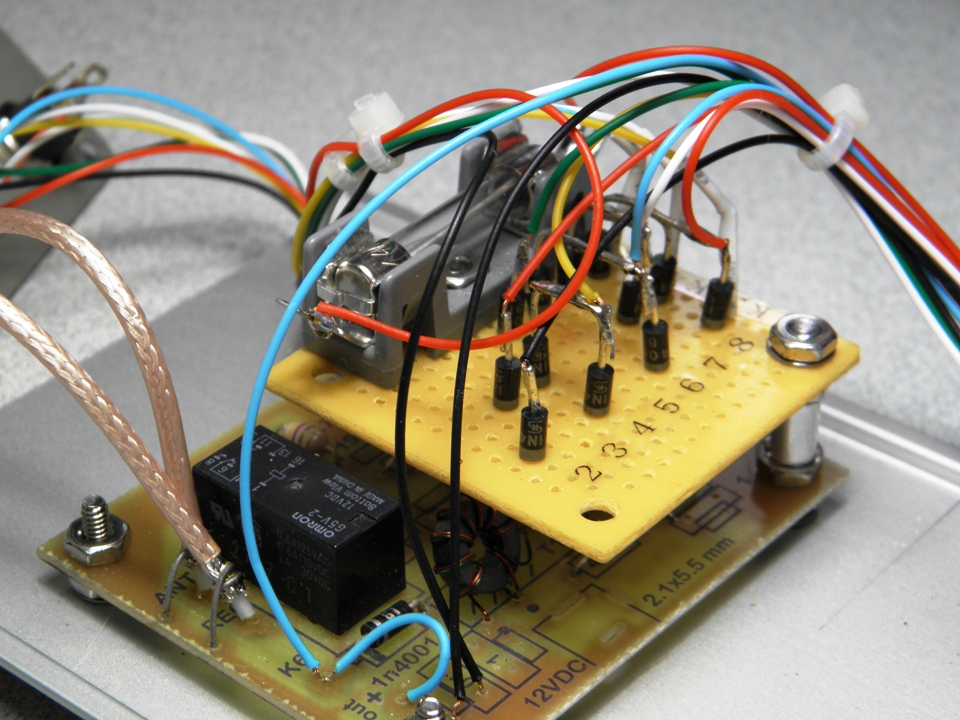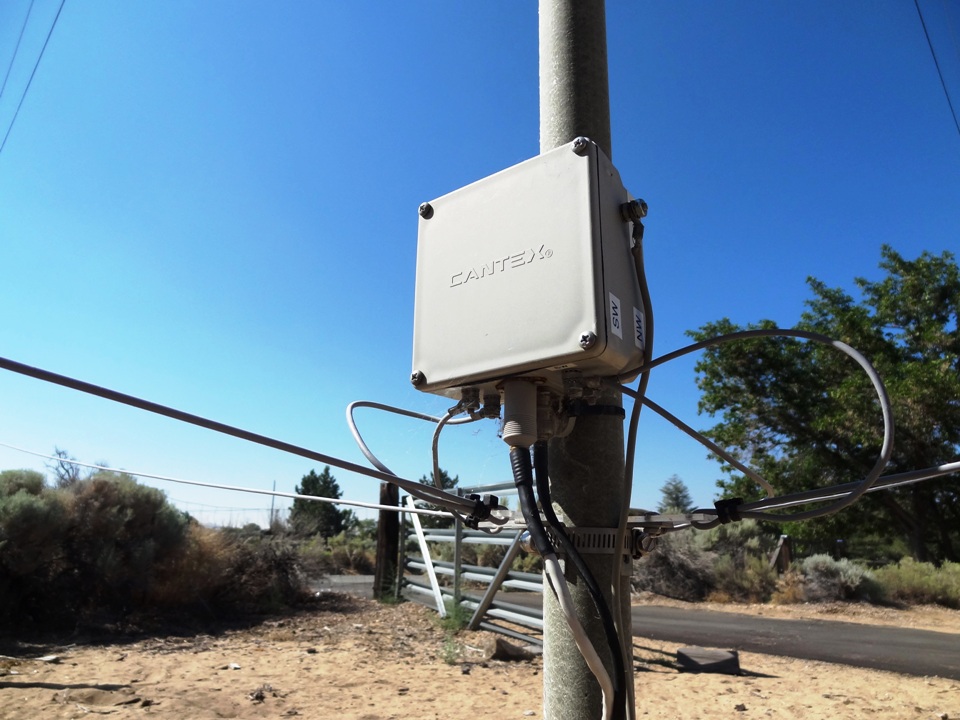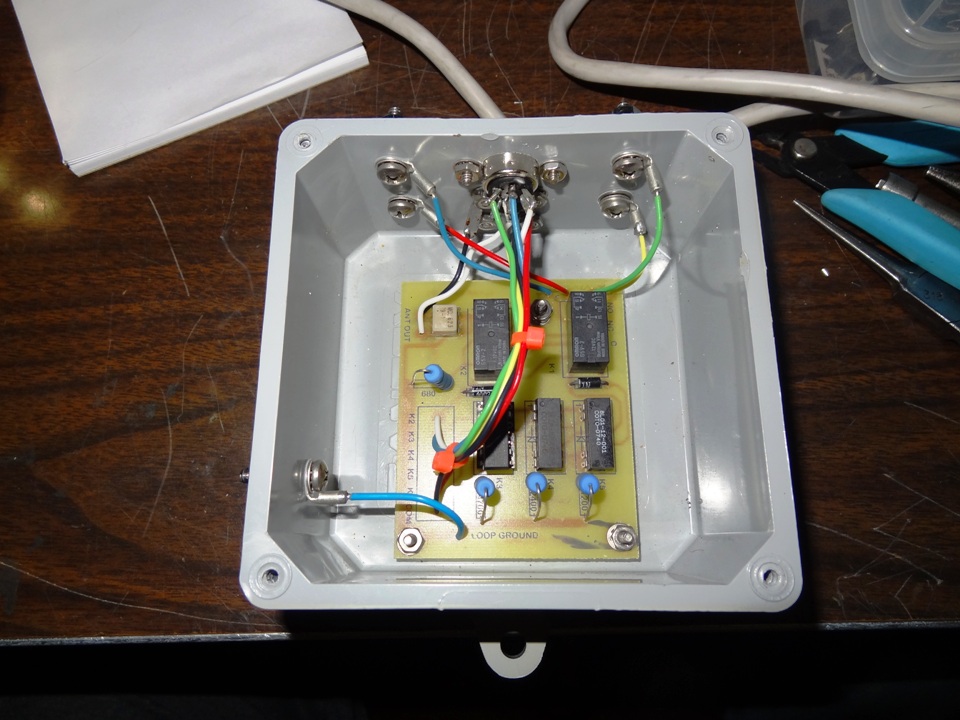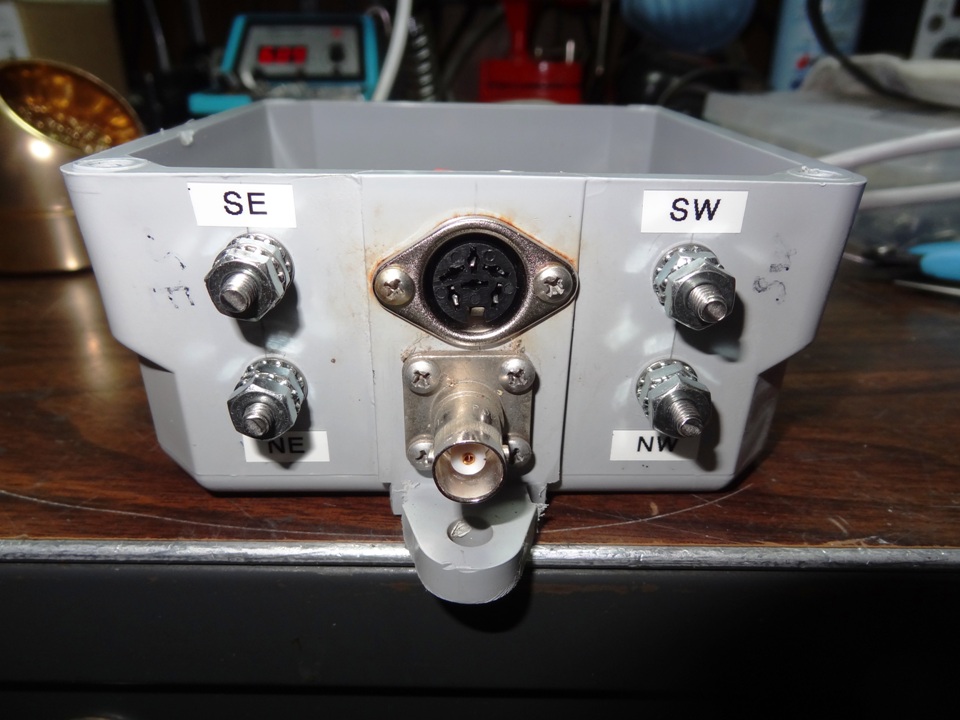K9AY 160M / 80M Receiving Loop Antenna System
After operating a couple 160 Meter contests last Winter, I realized I needed to do something to improve my receiving performance. It was apparent that many stations were copying me much better than I could hear them, so something needed to be done.
I knew Beverage antennas were the hot ticket, but I did not have anywhere near the real estate required for these antennas. Looking around the Net, I came across several articles about the K9AY Loop System, which seemed to be a good alternative, and required much less space.
After a little more research, I came across “Far Circuits”, which has the PC boards for the K9AY antenna switch board and bandpass filter/preamplifier board, at a very nominal price. A complete set of chip capacitors is included with the boards.
http://www.farcircuits.net/
http://www.farcircuits.net/preamp1.htm
I ordered the circuit boards from Far Circuits, and the rest of the parts from Mouser electronics. This was easy, because Far Circuits provided a list of the necessary Mouser part numbers. For the outside relay control unit I used a 4”x 4” x2” gray “Carlon” electric junction box, which is readily available from Lowes or Home Depot. I chose not to connect the coax shield, coming from the shack, to the loop ground to prevent the possibility of ground loop noise. The primary of the mini-circuits 9:1 xfmr is directly connected to an isolated BNC connector. For the control unit, I ordered a small project box from Mouser (546-1455N1201), when I placed my order for the other parts. I would recommend anyone considering this project, to order the Mini-Circuits 9:1 Transformer from Far Circuits, since they have them readily available, and much easier than a special order with Mini-Circuits.
To help simplify things, I have provided a detailed wiring schematic below, using the Far Circuits boards. To take advantage of eight possible termination resistance values, I made a small diode matrix board using 1N4001 diodes. I purchased a 1P12T switch (Mouser CK2425), and configured it for 8 positions. Each of the 8 positions selects a combination of termination resistances, via the diode matrix. For loop direction switching, I used a 3P4T rotary switch (Mouser CK2395), and used one section to control each of the loop relays (K1 & K2). The third section of this switch can be used to light front panel LEDs showing the selected direction. The Mini-Circuits 9:1 transformer data sheet was a little confusing as to which pins are the primary and secondary, so I terminated and tested it with a network analyzer to make sure I got it right. I found the side with the “Index Dot” is the 50 ohm primary. If you attempt to test this transformer with an ohmmeter, it will show zero ohms on both windings.
For the actual loops themselves, almost anything will work. Due to space considerations, I installed four 4”X 4” fence poles (NE SE NW SW), for anchor points for the two loops. Refer to the pictures below. For the center guys, I used parachute cord, and made tensioners from small pieces of acrylic that I bought as scrap from a local plastics supplier. I also made the insulators from this scrap acrylic. As an afterthought, I should have made the insulators for the sides of the loops slightly longer, and drilled three holes in them. One end of the insulator would slip over the eye bolt, with the outer hole used for the intermediate guy rope, and the center hole providing the pass-thru for the loop wire itself. Anything can be used for the center support. I purchased 6 sections of surplus fiberglass mast on the Net for a reasonable price. They were only 44” long, so I placed a 3” piece of 1-1/2” PVC pipe at the top, to obtain 25 feet. If you have a tree in your back yard you probably won’t need a mast at all. An eight foot copper clad ground rod was driven for the loop ground, at the base of the mast.
As for actual performance; All I can say is WOW! Switching between either my 160M or 80M Inverted Vee and the loops (with preamp on), the signal strengths appear to be equal, BUT the noise floor is 10-15db lower on the loops. Signals, at or below the noise floor seem to pop out of the noise, on the loop antenna. On low angle signals, I am seeing a 20 - 30+ db FB ratio. I have never heard, yet alone worked Europe on 160 Meters from the West Coast, however the first day after getting the loops operational, I was able to hear and work Latvia. The same evening, several other stations were heard from Europe on 75 Meters. Like someone said “It’s like having a beam on 80 & 160!
Good Luck, and happy hunting!
73’s Frank, K7SFN
Control Unit wiring showing diode matrix board, and Preamp Connections
K9AY Loops at K7SFN (NW-SE-NE-SW)
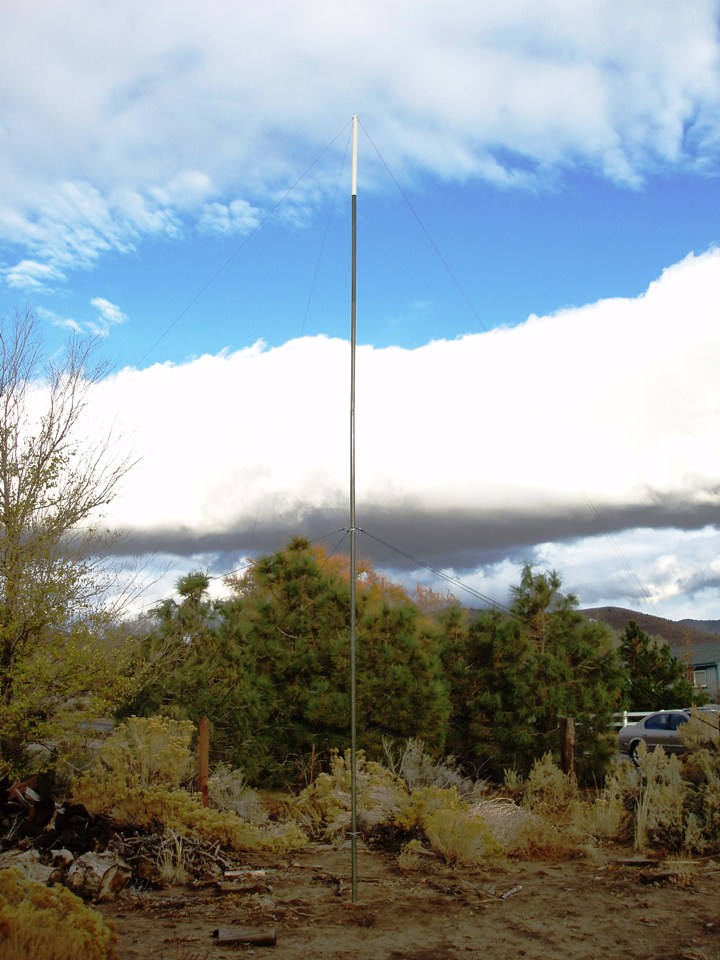
Rear View showing connections
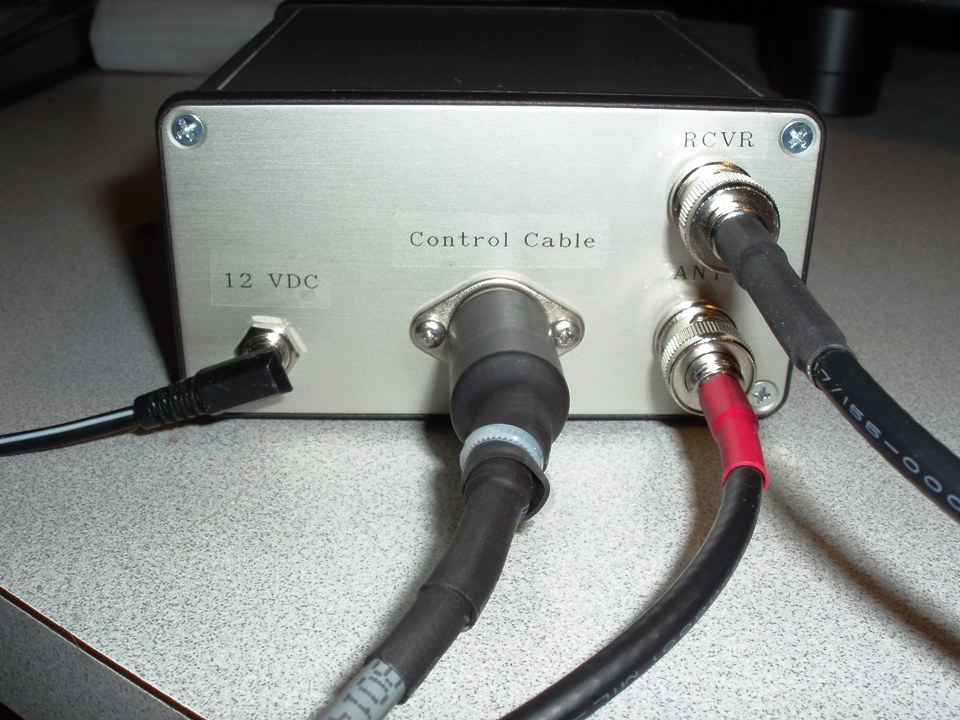
Outside Relay switch box & Feedpoints
Inside View of the Loop Relay Box
Outside Relay Box Feedpoint Connections
